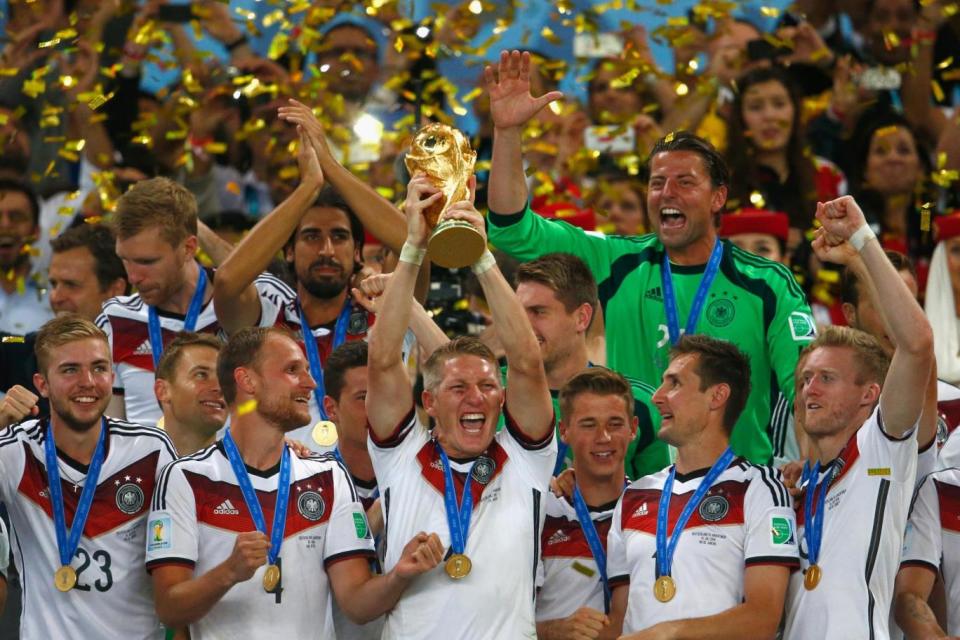Seb Coe: If England pull out of Russia World Cup, the losers are us

I don’t for a minute give any serious consideration to the prospect that an England team won’t be in Russia for the World Cup.
I hope the team are there, Gareth Southgate’s side certainly should be there. We can’t allow them to be caught up in some sort of John Le Carre novel.
Saying that, not for a minute am I belittling what’s at stake here with Russia — it is a very, very serious issue but putting pressure on the team not to compete is unrealistic.
If government officials don’t go, that really is hardly a great surprise.
It’s right for our politicians to question others and I’m sure when we hosted the London Olympics and Paralympics in 2012, there were many people and nations that took umbrage with our own foreign policy position, and they might have found it difficult to be there supporting their competing nations.
But in 2012, as with Russia today, surely, it’s better that we engage through sport? Political systems come and go, leaders come and go but there is a permanence to international sport.
Sometimes sport is pounced upon because politicians perhaps see it as expendable in their minds. It doesn’t cost them as dearly as, say, economic or other political sanctions.
You only had to listen to the foreign secretary Boris Johnson in the House of Commons last week — even though he rode back quickly — talking about a sporting event in the same breath as political discourse of two nations in Britain and Russia that are currently struggling to find a common cause with each other.
If only politicians applied the same instant recall and passion to sport and its facilities at home that are struggling to fight against corporate redevelopment, like the much-loved and much-used Crystal Palace sports complex.
We all understand the parameters of sport but we’re not privy to the hidden elements and consequences of this Russia debate as obviously not all of it is out in public. But we do know if we target sport it will hurt only the players and the team.
If sport is to remain global, we have to go around the world and, if you do that, inevitably there will be issues.
Is it right that Russia hosts the World Cup? Well, when that bidding process was carried out, we didn’t know then what we know now.
But it’s a very difficult, arbitrary and often timing-related decision if we try to create a template for who we play with and who we don’t.
If we did it on that basis, international sport would unravel very quickly and it would take a long time to put it back together. I’ve already espoused in these pages before the power of sport but, at the same time, I’m realistic that it’s not the ultimate panacea.
But it can often be the building blocks of change.
Sport shines a light on issues that politicians often have to tiptoe around and helps raise issues in a public domain. Take PyeongChang, for example.
The unified Korean women’s ice hockey team created a bridgehead where none existed for the two nations to have a dialogue and, yes, even President Donald Trump agreeing to talks with Kim Jong-un.
With the current Russia problem there is a sense of 1980 all over again.
Politicians learned a lot from that and I was one of those to fight tooth and nail to compete at the Moscow Olympics. Ever since then, people have been much more cautious about pulling teams out of major sporting events. Obviously, each athlete or footballer has the choice. I chose to go to the Games in 1980 because I felt I was still able to compete against the very best in the world.
I didn’t go to South Africa as their political system would have been closed to many of their best athletes at that time. I felt the two decisions were very different.
An England footballer might choose not to go to Russia because of the political situation. It’s unlikely, I know, but I don’t speak for them and don’t know what’s going through their minds.

But we’ve seen sportsmen and women make a stand, whether that be Jesse Owens or Tommie Smith and John Carlos or those athletes fighting on behalf of LGBT rights at my sport’s World Championships in Moscow in 2013.
It’s up to the competitors to talk these issues through as they see fit.
Sticking to athletes, the political situation with Russia will not affect the IAAF stance.
We have the taskforce still in existence and we’re still piecing together the road to reintroduction for Russia.
But we have tried to find a way to let the clean athletes compete by separating them from a tainted system. We have to keep athletes at the centre of this.
As for the World Cup, the show will go on and England should be there.

 Yahoo News
Yahoo News 